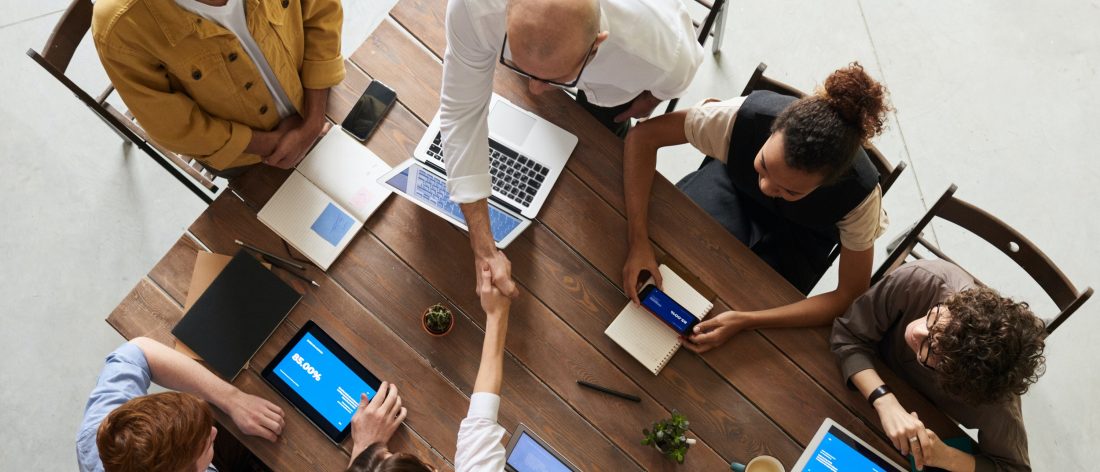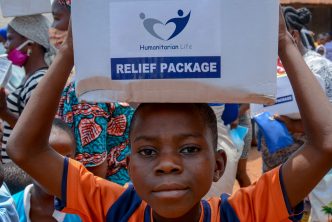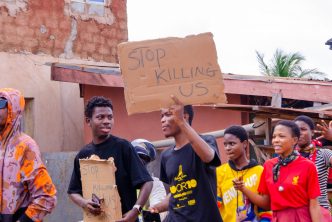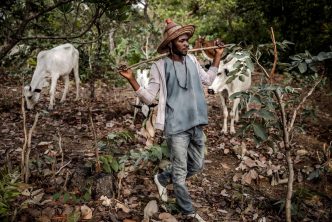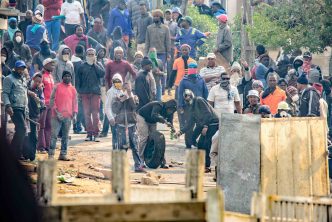Under Lockdown
In the early days of the COVID-19 pandemic, as the world contemplated how to respond, Nextier was contracted to conduct an end-of-project evaluation by one of its clients. The team commenced planning for the project, which included agreements on the project methodology and deliverables. However, two weeks before the proposed field assessment, the nation went on full lockdown, which meant a ban on the gathering of all sorts and suspension of intercity travel. How does a firm carry out project evaluation fieldwork in a pandemic?
Old Normal
COVID-19 inspired lockdowns impacted project evaluation services just as they did many other services. The pandemic has distorted realities and pushed countries around the world to adopt multiple approaches towards containing the virus spread. With deaths ranging in hundreds of thousands, the virus represents one of the world’s worst public-health crisis in recent history. With cases still on the rise in many parts of the world, the pandemic is far from over.
Instead of returning to the old reality, evaluation organisations have to adopt new approaches. Where focus group interactions and one-on-one interviews were standard, options that require physical proximity may no longer be an option. Stakeholders forums, town hall meetings, public dialogues and other physical formats may be modified in favour of social distancing in spaces that can safely house a fraction of the number of people they used to. The challenge for most people working in the research and evaluation industry remains how to gather evidence under these new constraints. Nevertheless, depending on the study’s plan and design, there are several ways collection of data can be conducted during this period with utmost regards for human safety against the virus.
New Normal
Desk research has always proved to be an indispensable part of any study. A review of project activities, reports and previous related publications goes a long way in giving a broad understanding of any research. A proper online search can provide related supporting secondary data for any study. Moreover, it is a low-cost technique when compared to field research. At the end of the investigation, one would have reviewed and collated all partial data to feed into the final report.
Face to face interviews, focus group discussions, and observation were some of the primary data collection alternatives proposed before COVID-19, but due to the pandemic, these approaches have moved online. While access to the internet is still patchy, the last decade has witnessed great strides in improving telecommunications across the African continent. Nigeria, in particular, has grown as one of Africa’s largest telecom market. The industry accounts for 10.9 per cent of the nation’s gross domestic product (GDP), and about 141.2 million Nigerians are connected to the internet.
Technological advancement has opened up platforms for online data collection. Email, telephony, and social media platforms are reliable channels to reach respondents and gather information for evaluation study. Nigeria’s active mobile voice subscribers increased to over 192 million, with a teledensity of 100.72 percent. Mobile phones are used to conduct polls and collect data from relevant stakeholders and individuals with useful knowledge in a format that does not require person-to-person contact. These engagements can be conducted either via short message service (SMS) or interactive voice response (IVR). Nextier has relied mainly on IVR, to obtain independent information and opinions regarding programme implementation, challenges, and lessons learned from project stakeholders during this COVID-19 pandemic.
Platforms such as WhatsApp, Zoom and Microsoft Teams are useful for virtual meetings. The team relies on these platforms to relay information and brainstorm solutions. Various apps like Slack or SharePoint, enable teams to collaborate, upload reviews and share large files from wherever they are sheltering in place.
Ditching the Hitches
These solutions are not without hitches. For instance, existing data does not answer all questions. Thus, there is always the need for different data sets to support desk review findings. While the SMS can be a relatively cheaper option compared to IVR, there is a limit to the number of characters you can use in an SMS. Mobile phone surveys are not suited for lengthy interviews; the last thing people want during this period is to respond to a 40-minute survey. Survey respondents can also be distracted from the task of answering questions. In our case, the main challenge was getting the respondents to respond to the calls. Our work-around this challenge was to use bulk SMS to introduce the study and explain why the study should be of interest to the recipient.
The flaw of online repositories, like those of virtual platforms, is the challenge of internet access. Except for the major cities, internet reliability is still weak in the secondary and tertiary cities across the country. Despite the advancement in technology, internet access has remained a significant challenge in the country.
Conclusion
Despite its health and public challenges, COVID-19 should not be a justification for not evaluating a project or programme. This challenge comes at a time when evidence-based decisions are more necessary than ever. There are ways to collate data while still maintaining the safety of the evaluator. Many firms will have to rely on online data collection using digital platforms to overcome the various limitation of field access and the risks of physical interactions.


